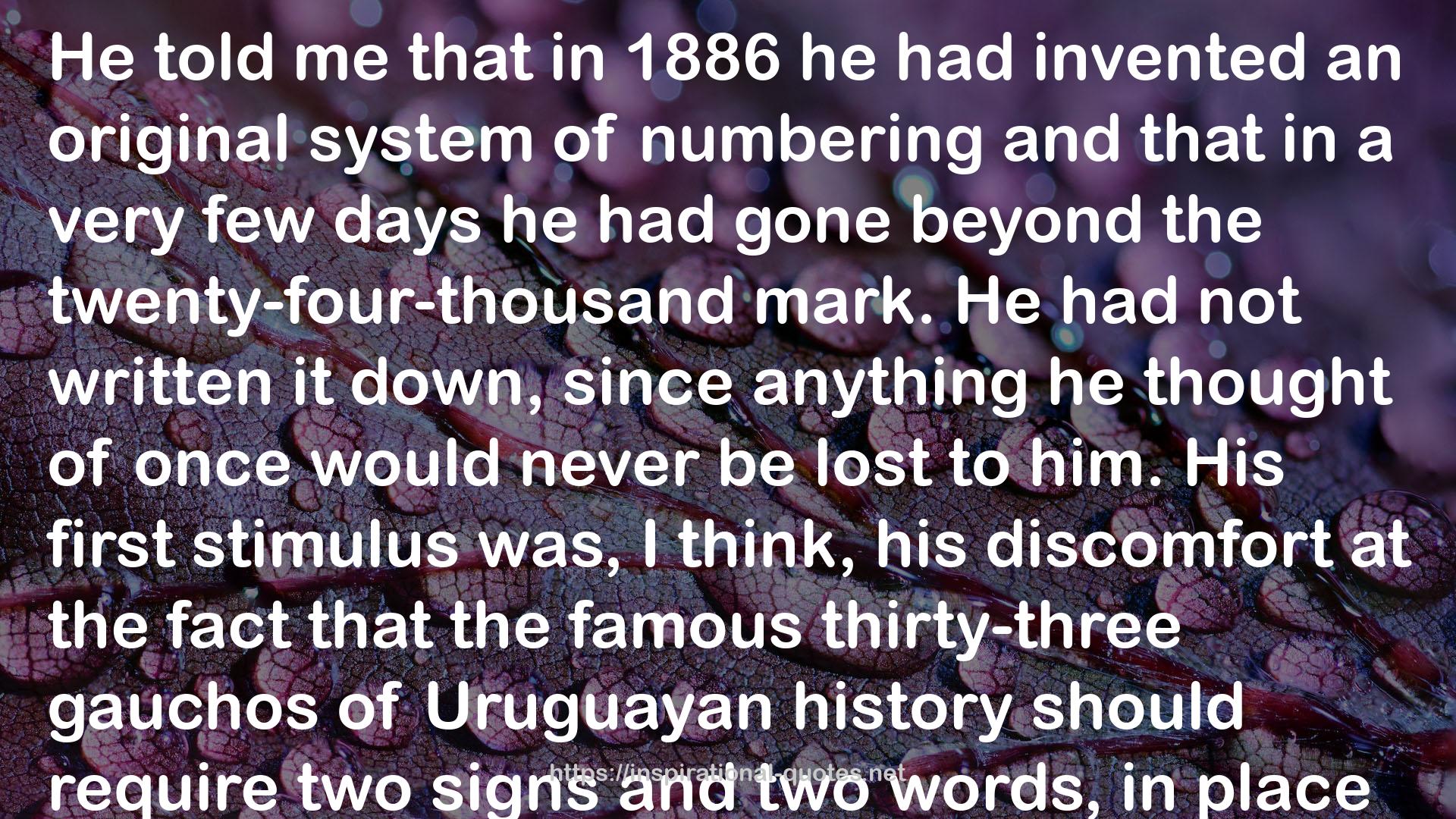" He told me that in 1886 he had invented an original system of numbering and that in a very few days he had gone beyond the twenty-four-thousand mark. He had not written it down, since anything he thought of once would never be lost to him. His first stimulus was, I think, his discomfort at the fact that the famous thirty-three gauchos of Uruguayan history should require two signs and two words, in place of a single word and a single sign. He then applied this absurd principle to the other numbers. In place of seven thousand thirteen he would say (for example) Maximo Pérez; in place of seven thousand fourteen, The Railroad; other numbers were Luis Melián Lafinur, Olimar, sulphur, the reins, the whale, the gas, the caldron, Napoleon, Agustin de Vedia. In place of five hundred, he would say nine. Each word had a particular sign, a kind of mark; the last in the series were very complicated... "
― Jorge Luis Borges , Labyrinths: Selected Stories & Other Writings
